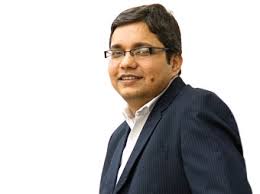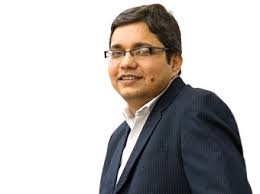

The Narendra Modi led BJP Government would be commemorating its 2nd anniversary this month. While the entire globe is mesmerised by the power push of Mr Modi, his workaholic ministers have created a sizeable impact on ground zero. The packaging and repackaging of various national programmes launched in a mission mode have made a definitive impact in one way or the other led by an emboldened bureaucracy to whom the Prime Minister gave a pep talk this Civil Services day. The central theme of his long exhortation was that the civil service would need to reposition itself from being a mere Regulator, Administrator, Manager to a change agent.
How much of this change would hit the vast landmass of India remains to be seen. However the domain of healthcare is yet to see a major concerted push. Though a lot of fault lines are being bridged at various levels in terms of doing away with Fixed Composition Drugs, awareness building about overconsumption of antibiotics, creation of a high-powered committee to oversee the overhaul of Medical Council of India, inducing the ripple effect to the position of Supreme Court eventually mandating for a single combined medical entrance examination, initiation of several low profile but important medical programmes as in inoculation of children, training and capacity building of midwives, campaigns around nutrition et al, yet the absence of a comprehensive national programme from the stable of Modi Sarkar keeps the observers gnawing.

Healthcare by its very nature is a very complex and sensitive area to reform and modernise where there is a huge gulf between demand and supply, giving rise to a mammoth spree of malpractices as uncovered in the recently released book by Dr Arun Gadre and Dr Abhay Shukla titled Dissenting Diagnosis. The rapid expansion without the due rigour of regulation and sheer absence of transparency inducing information systems has led to practices like target system,cuts, sink tests, etc.
In a country where the integrity and probity of public systems is already under deeper stress, the civil society advocacy compounded with innovative entrepreneurial solutions need to add up to the sovereign government efforts.
The Prime Minister touched the chord of Indias rising urban class when he talked about the quality of education probably for the first time as a refreshing breather in the 19th edition of his Mann ki Baat. May be on the occasion of his 2nd anniversary in power, he shall enunciate a comprehensive overhaul of public health in India. Using his well cherished phraseology, may be Swasth Bharat would galvanise the rank and file of healthcare stakeholders.

We at eHEALTH however remain dedicated to the emergence of a quality, cost-effective and integrity-driven enterprise of healthcare, of which technology shall certainly be a prime mover and influencer. This issue presents a special story on Telemedicine, explaining how the various medical brands are using the power of technology to reach out to the underserved areas and making healthcare further inclusive. The domain of clinical chemistry is yet another breakthrough which is making on spot healthcare diagnostics possible.
We also present herewith in this issue Indias Most Progressive Brands in Medical Education. An in-depth analytics-based ranking framework has been created to gauge the progressiveness coefficient of Indias Medical Colleges.
Be a part of Elets Collaborative Initiatives. Join Us for Upcoming Events and explore business opportunities. Like us on Facebook , connect with us on LinkedIn and follow us on Twitter , Instagram.












